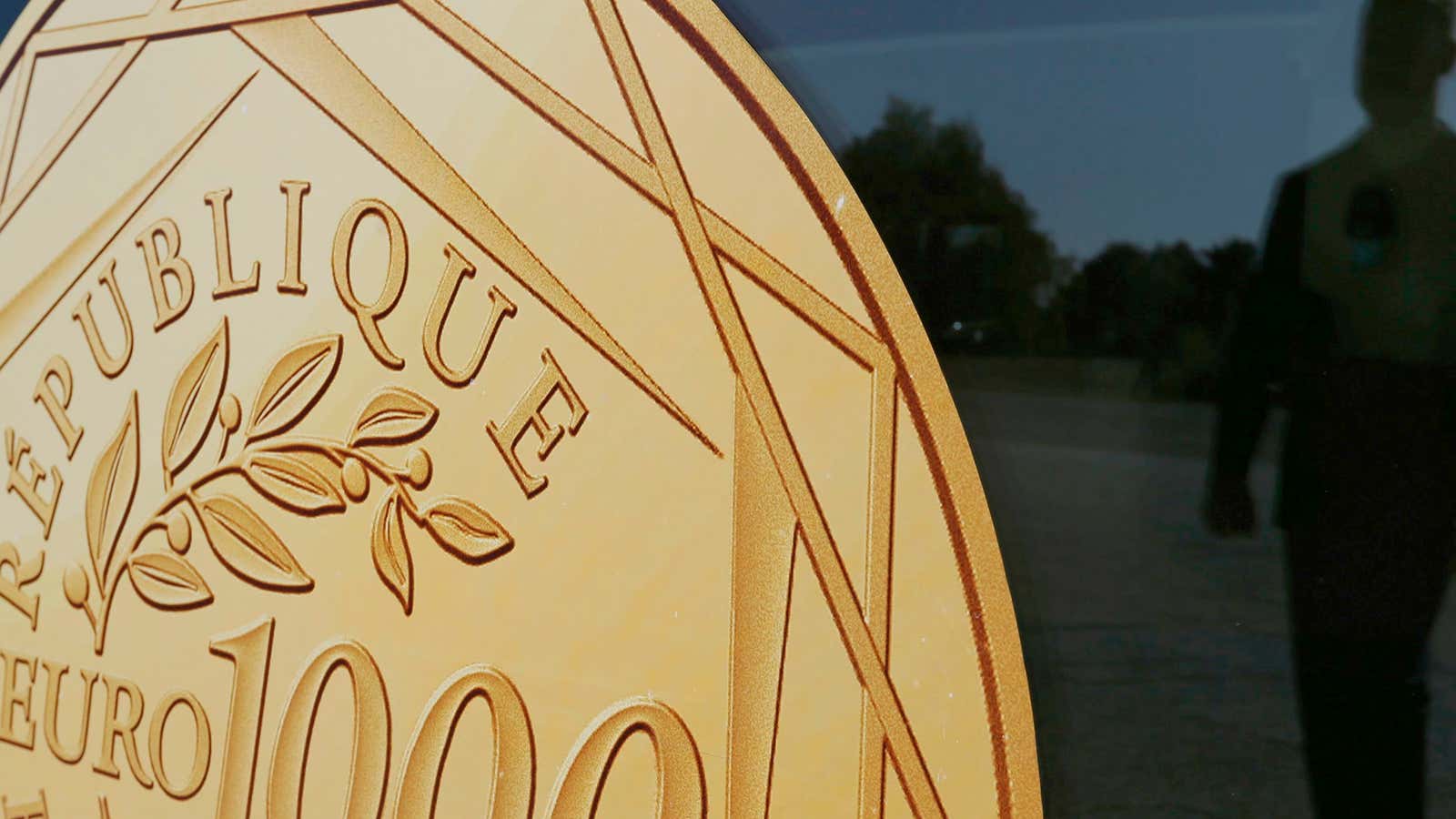The French like to invest their savings in life insurance, and Max-Hervé George’s father probably thought he was being wise by buying his son a policy, worth 50,000 francs (now roughly €8,000), when he was seven years old. Little did he realize just how wise that decision was.
George’s policy, a Fixed Price Arbitrage Life Insurance Contract with the insurer L’Abeille Vie, allowed him to re-allocate his investments into different funds every Friday (link in French). He was able to switch funds before the next week’s prices were published, regardless of the fact that the market had moved in the interim.
Essentially, George could invest at last week’s prices knowing what was going to happen in the future. Between 1997 and 2007, his family earned annual returns of 68.8% on the contract. They should have at least €100 million ($112 million) by now.
The blogger Jason Kottke compared the contract to Grays Sports Almanac, the sports bible that the villainous Biff gives to himself in 1955 to become a billionaire in Back to the Future Part II:
And that’s not far from the truth. The Financial Times (paywall), calling it “the worst contract in the world,” said that George could be a billionaire by the end of the decade and eventually even be worth more than Aviva France, the enormous insurer that eventually bought L’Abeille Vie.
Why did the insurer ever offer such a crazy contract? In 1987 when the contract was offered, prices of funds were published less frequently and the potential to benefit from the arbitrage was less. Still, the insurer eventually realized the stupidity of the move and tried to convince people to tear up the contract for 100 francs. George’s family said no.
Aviva has challenged the claim of George and others to his compensation from his fund (link in French), which is still pending in the French appeals courts—though the 30 or so hold-outs that kept their original policies from the 1980s have won several cases as to the validity of their contracts, the FT reported.
George still trades—no longer by fax, only by registered letter—but because of the litigation, has no idea what his policy is worth. His contract even allows him to add money to his pot—so he is only trading the original investment plus his profits, but he can add additional money in to sweeten the deal at any time. In 2007, the family’s investments were worth €21 million.
What would happen if all the hold-outs like George won their cases? Aviva France insisted to the FT that it “remains appropriately reserved”—but is that really possible if the insurer may eventually have to pay out more in compensation that it is itself worth?




